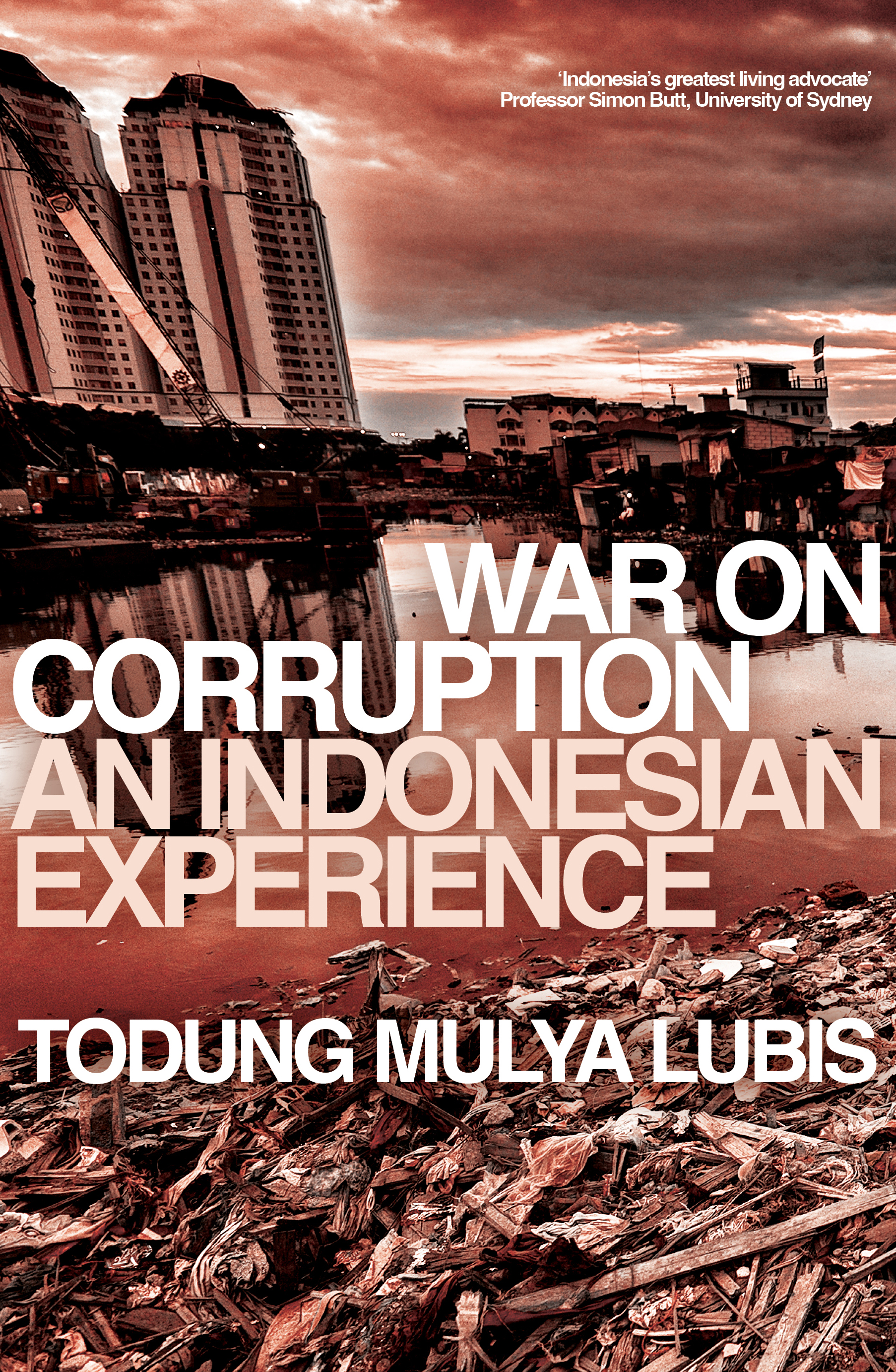War on Corruption: An Indonesian experience
Melbourne University Press, $40 pb, 263 pp
Mirror on corruption

If the Australian government had banned books about Indonesia, it could hardly have been more successful in removing them from bookshops and library shelves than is presently the case. Even when such books appear in catalogues, retailers seem convinced that the public is not interested.
Lowy Institute polling reveals that Australians’ knowledge of their 270 million Indonesian neighbours is still superficial and often wrong. In 2022, some twenty-six years after the overthrow of General Suharto, only forty-eight per cent of Australians were aware that Indonesia had become a democracy, though admittedly that proportion had doubled since 2018.
One thing Australians do seem sure about is that Indonesia is corrupt. Todung Mulya Lubis – respected lawyer, human rights advocate, and anti-corruption campaigner – agrees that corruption has become ‘the norm’ in parliament, the bureaucracy, police, and even the judiciary. War on Corruption tells the story of how corruption has encroached upon and ‘saturated’ Indonesia’s government over the past seventy years.
Lubis ought to know: his own preface and colleague Tim Lindsay’s foreword relate something of his life experience. Lubis was born in 1949; his life has encompassed almost the full extent of Indonesia’s extraordinary transformation from colonial state to independent democracy, military rule, and, since 1998, democratic restoration (Reformasi). As a young activist lawyer, Lubis began working for the new Legal Aid Foundation. After Reformasi, he became, in his own word, ‘obsessed’ with corruption, as well as with human rights, and became an influential public campaigner on both issues.
Continue reading for only $10 per month. Subscribe and gain full access to Australian Book Review. Already a subscriber? Sign in. If you need assistance, feel free to contact us.












Comment (1)
Leave a comment
If you are an ABR subscriber, you will need to sign in to post a comment.
If you have forgotten your sign in details, or if you receive an error message when trying to submit your comment, please email your comment (and the name of the article to which it relates) to ABR Comments. We will review your comment and, subject to approval, we will post it under your name.
Please note that all comments must be approved by ABR and comply with our Terms & Conditions.